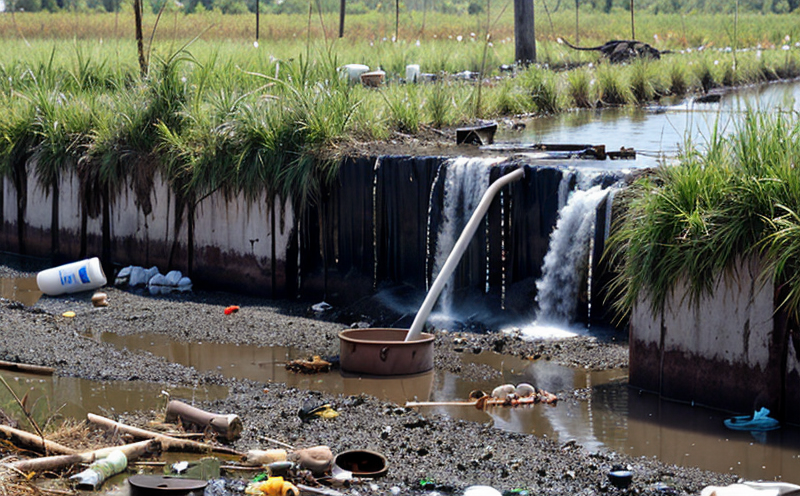Industrial Effluent Pollutant Testing
Industrial effluent pollutant testing is a critical component of environmental compliance and sustainability efforts within various industrial sectors. This service involves the analysis of waste water discharged by manufacturing plants to ensure it meets regulatory standards set forth by international bodies such as ISO, ASTM, EN, and IEC.
The purpose of this testing is twofold: first, to protect human health and the environment from potential harm caused by pollutants; second, to assist industries in meeting legal requirements. Pollutants can include heavy metals, organic compounds, salts, oil and grease, suspended solids, pH levels, biological oxygen demand (BOD), chemical oxygen demand (COD), and nutrients like nitrogen and phosphorus.
At Eurolab, we employ advanced analytical techniques including inductively coupled plasma mass spectrometry (ICP-MS) for heavy metals; gas chromatography-mass spectrometry (GC-MS) for organic compounds; colorimetric methods for measuring nutrients; and flow cytometry for assessing microbial contamination. Sample preparation is crucial and involves filtration, digestion using strong acids or bases, and dilution where necessary.
Our laboratory adheres strictly to ISO/IEC 17025:2017 standards ensuring accuracy, precision, and reliability of our test results. We also participate in proficiency testing programs organized by international organizations like APLA (Asian Pacific Laboratory Accreditation Cooperation) and ILAC (International Laboratory Accreditation Cooperation).
- ICP-MS: Used for the detection of trace elements including arsenic, cadmium, chromium, lead, mercury, nickel, selenium, and zinc.
- GCCS: Gas Chromatography Coupled with Mass Spectrometry used to identify volatile organic compounds (VOCs).
- Flow Cytometry: Utilized for quantifying viable microorganisms present in the effluent.
Eurolab Advantages
Eurolab offers a range of advantages that make it an ideal partner for industrial effluent pollutant testing. Our team comprises highly qualified experts with extensive experience in environmental chemistry and toxicology.
- Comprehensive Testing Capabilities: We offer a full suite of tests tailored to meet specific industry needs.
- State-of-the-Art Facilities: Equipped with the latest analytical instruments ensuring accurate measurements and rapid turnaround times.
- Regulatory Compliance: Our services are designed to comply with international standards and local regulations.
- Confidentiality: We respect client confidentiality, treating all data securely and confidentially.
International Acceptance and Recognition
Eurolab’s testing results are internationally accepted due to our adherence to global standards. Our proficiency in various international frameworks ensures that our clients can trust the reliability of our reports.
- American Society for Testing Materials (ASTM): ASTM E1372-06 specifies test methods used to determine the chemical composition of wastewater samples.
- International Organization for Standardization (ISO): ISO 9001:2015 certifies our quality management systems, ensuring consistent service delivery.
- Nordtest: Recognized by the Nordic countries for its stringent testing protocols.
Competitive Advantage and Market Impact
Eurolab provides a competitive edge to our clients by offering unparalleled accuracy, speed, and reliability in industrial effluent pollutant testing. Our services not only help businesses comply with stringent regulations but also contribute positively towards their corporate social responsibility initiatives.
By identifying potential issues early through thorough analysis, industries can prevent costly shutdowns and fines associated non-compliance. Moreover, our insights enable companies to optimize resource usage, reduce waste generation, and adopt more sustainable practices.
We also assist in R&D projects aimed at developing cleaner production processes and innovative solutions for managing industrial effluents effectively. Our expertise has been instrumental in helping clients achieve their sustainability goals while maintaining profitability.





